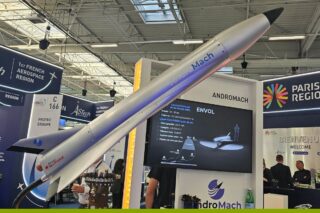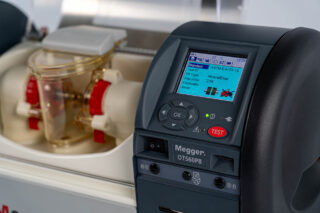Thanks to the likes of Siri, Alexa, and Google Assistant, consumer-focused voice tech has seen huge growth over the past decade. On the industrial side, however, the development and uptake of voice assistants have been far slower.
Founded in 2013, Toulouse-based company SPIX industry has been leading a major R&D effort to develop voice solutions and intelligent conversational agents for industry. DirectIndustry e-magazine recently caught up with SPIX industry’s Chief Operating Officer, André JOLY, to find out more about the company’s products and the evolution of the industrial voice assistant space.
For people who don’t know SPIX, can you please describe the system, focusing on its most innovative aspects?
André JOLY: SPIX industry is the European leader in industrial voice solutions – our mission is to embed voice at the heart of tomorrow’s industry. SPIX is a voice assistant dedicated to all workers in the field.
SPIX is oriented towards helping workers perform their everyday tasks better. This effectively means two things. Firstly, it means giving workers access to information through their company’s digital system: “what is the torque level of this screw“, “what is included in my next working step“, and so on. Secondly, it means enabling them to feed information back into that system, such as the fact that they’ve completed their task, or that this particular part needs to be rejected, or the measurement is 12.7 volts.
To enable this level of support we have enabled different functions for our voice assistant. First of all, the dialogue manager – every voice assistant needs a dialogue manager – is task-oriented. This means we make sure that all the dialogue activities are oriented towards the goal of completing the task. This means everything is designed to address the constraints of the industry, such as background noise, or security issues, or the absence of network connection at certain times. We then split the voice assistant into different skills or services – just like Alexa, but on a bigger scale – that can be plugged into industry-specific business software. For example, there is a skill for measurement, a skill for information access, and so on.
The system is smart because it includes natural language processing (NLP), which allows people to express themselves as naturally as possible – and be understood. It isn’t self-learning, however. At present, there is very little demand from industries for this. They only want deterministic systems.
How does SPIX work on a practical level? How can businesses integrate it into their workflow? What level of complexity can it handle?
André JOLY: On a practical level what we try to do is integrate a voice interface with a piece of business software that already exists in the workflow of the industry. That means we don’t do anything to change the existing workflow. The industry already has its own software, their digitalisation, their back-end and front-end interactions. SPIX integrates a voice interface with the front-end, which enables workers to access our skills. These, in turn, enable workers to interact with their usual business software using only their voice, rather than a keyboard and mouse.
SPIX understands all the shopfloor tasks, nests in any hardware device, and is accepted by all operators. The level of complexity depends on the level of complexity of the company’s business software.
What benefits does SPIX offer to businesses and their employees?
André JOLY: Many employees working for big corporations are practical people. They may be good at checking if a train or a machine is working, but they don’t like filling in forms, spending time in front of a computer. SPIX frees up their hands and eyes, allowing them to access and submit data in real-time using just their voice. By making jobs safer, more comfortable and easier to perform, SPIX can boost worker performance.
For the moment we are addressing the needs of big corporations, such as SNCF, Renault, EDF, Airbus, Thalys. This for several reasons. They have large workforces and dream of analyzing and controlling everything with big data. They already have a solution for their hardware, their machines – but for everything that is human-related, things are less than ideal. In this area, they have a lack of data, or data that isn’t generated in real-time. SPIX addresses this bottleneck by freeing up the flow of data from humans in the field. This can optimize the use of business software, eliminate mistakes, and boost profitability.
RELATED ARTICLE
Voice assistants in industry have so far been constrained by issues such as background noise. How does SPIX overcome this?
André JOLY: We solve these issues by combining three different things. A voice recognition system, a dialogue manager, and a microphone. These combine to make the system super reliable. For example, a voice recognition system might expect a voice input from a worker of 12.7 volts. But if the voice input isn’t clear, if it only hears “12.7” – because of background noise or strange pronunciation – the dialogue manager will ask for part or all of the input to be repeated. This a foolproof strategy for overcoming misunderstanding.
How do you see the future for voice assistants in industry developing over the next decade? Is this a game-changing technology?
André JOLY: The overriding aim of industry over the next decade is to drive everything through big data. To be able to predict everything, to moderate everything, to control everything with big data. IoT is a solution for machines. We believe voice is a solution for humans. Voice means there is no break for humans to give data to the system. Over the next decade we want to make this vision a reality.
What are the future plans for SPIX? Are there any technological developments in the pipeline?
André JOLY: With our first commercial rollout happening in 2021, our plan is to continue deployment of SPIX. The next technological challenge for us is to develop hybrid voice solutions, which can take advantage of the development of private 5G networks by industries. These solutions will work completely offline, but will leverage the benefits of online solutions.











